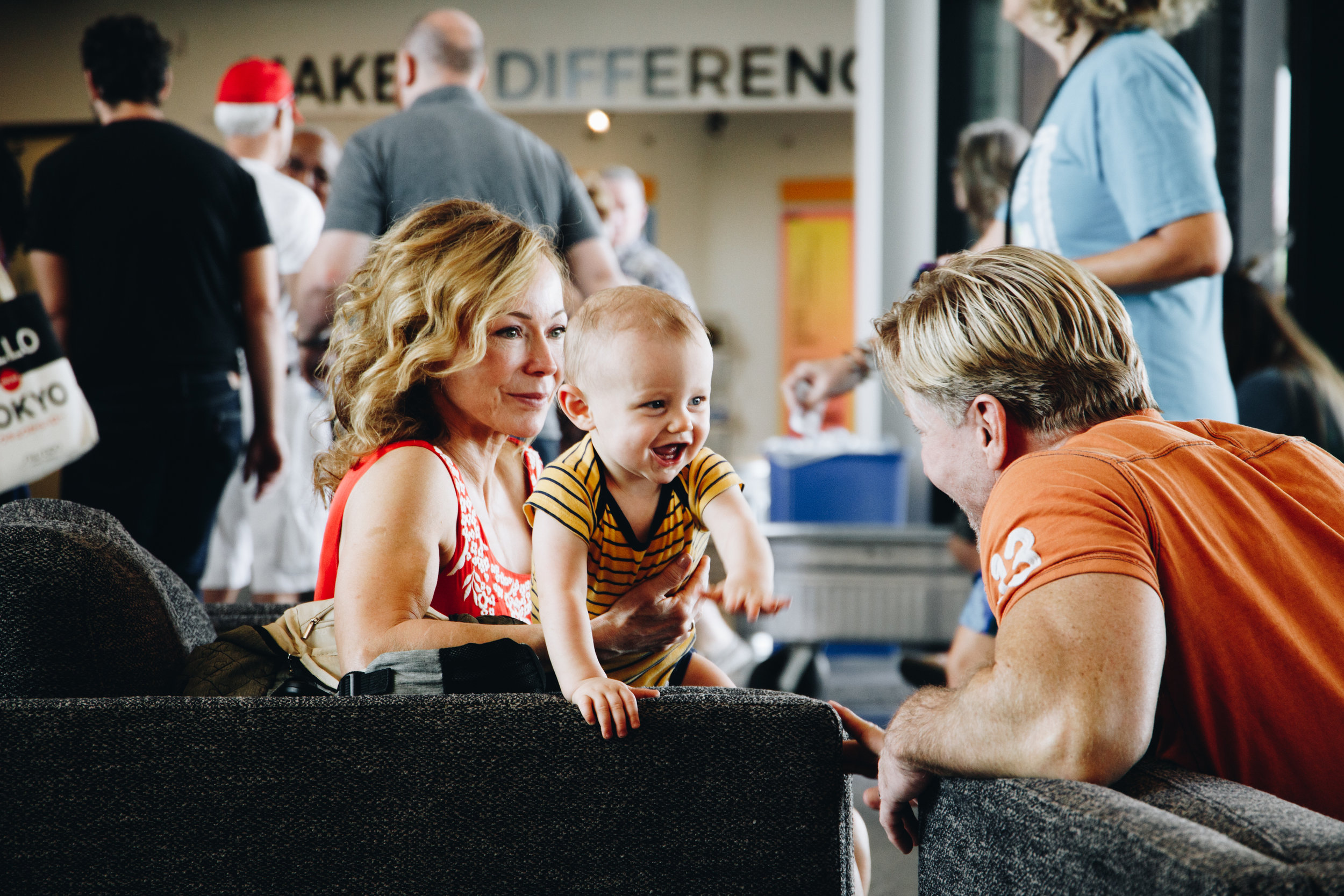My Church is Better
My Church is Better
A Journey from Attending the “Right” Church to Celebrating the “Wrong” Churches
BY JESSICA LAWSON
I fell in love with my first Christian church.
When I became a Christian it was at the largest church in my hometown. I was raised in a stale version of Catholicism that left me hungry for more than unexplained traditions.
I loved it so hard that in my spiritual infancy I thought to love it meant to dislike other churches that fell in the same genre as my church: Nondenominational.
Nondenominational churches have been compared to, by one of my favorite college professors, the Hometown Buffets of denominations. Denominations of the religion of Christianity are served to unite folks that believe and prioritize specifics of theology or religious rituals versus others who may have different priorities.
The *Southern Baptist denomination has strong cultural roots in the South where tobacco grew aplenty, but alcohol came from the North. Back in the Civil War era, the alcohol stayed in the North and the tobacco stayed in the South. And present-day Southern Baptists consider drinking to be “sinful” and Northern Baptists consider smoking to be “sinful.”
Seven Day Adventists do not eat meat. Lutherans are more liturgical. Catholics baptize babies. But with Nondenominational churches, there is no structured protocol of beliefs to go off of, other than the Bible. It is up to that church, pastor, elder board, or congregation to establish how they practice Christianity.
As I grew in my spiritual understanding of this genre of Christianity it seemed like Nondenominational churches were somewhat competitive with one another, especially the growing ones in my hometown.
As a high schooler, I heard, “My youth group is going to this camp.”
“My church has Phil Wickham playing.”
“My church has Relient K coming in the fall.”
“My church has more people.”
“My church has cooler people.”
“My church is more real.”
“My church shares the gospel more.”
I mean, sounds ridiculous, right?
Half of those arguments probably came from my church friends and me. We loved our church and in our immature brains that equates to the attitude that our church was right and those other churches were wrong.
But as I grew, I realized my big, large church wasn’t right for me anymore. I was tired of getting lost in the crowds. I was tired of the lack of accountability. I was tired of not being seen.
I wound up at a small, small, SMALL church. Southern Baptist, aka slightly more structured and custom-focused than the “nondenom” church I previously attended.
And would you guess, I fell in love with this church.
And I started talking down on my big evangelical focused church before I knew it:
“They don’t care about discipleship.”
“Why do they spend so much money on fog machines for worship?”
“I never met the lead pastor.”
But here at this small church, the pastor knew my name before I even introduced myself.
I felt seen. I felt heard. I mattered.
And after four years, drama in my sweet little Southern Baptist church drove me into a season of no church.
No church.
And I did not fall in love with that.
My community-oriented soul was crushed for a season.
It always mattered to me that I was at the “right” church but that drove me to stop pursuing if a church was “right” for me.
Does that church love people well?
Does that church have areas where I can serve and grow in my spiritual gifts and God given talents?
Does that church have a burden to serve people?
Can I serve this church well?
That same professor I mentioned presented an idea I had never heard of before: Multidenominationalism.
The concept is that instead of focusing on the differences that divide denominations, we celebrate the differences as they are reflective of the diversity of God.
Our God is big enough to care about evangelism and discipleship. Our God is big enough to care about addiction and alcoholism. Our God is big enough to care intimately for each person in the biggest church in South Korea (with over one million congregants) and to care hugely for the smallest little church on the side of the road driving up to Mammoth (where you think, “my Word! People live here?!”)
Our God is diversely powerful and powerful in His diversity. He can handle all of our differences because they embody different pieces of His heart and character.
So, what do we do when we are tempted to believe that our church is superior to another? I think we pause and pursue gratitude. We stay humble. We ascribe the credit where credit is due.
All of these churches belong to God first before they belonged to us. And if we try to grasp that, maybe we can arrive at the point that we belong to each other and Him.
There are 59 "one another" commands in the New Testament. They are each written for Christians concerning their love for other Christians — kind of like family rules.
So brother or sister, let us love one another. Let us root for each other’s churches. We are all in this together. And the Church will do a lot better if we work together for how She portrays our God instead of how our little “c” churches portray Him.
Celebrate the differences.
Sincerely,
Kindred
*Not every Southern Baptist May specifically believe this. But fun fact, that is where the origin of that cultural and religious taboo belief came from.













